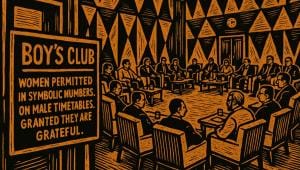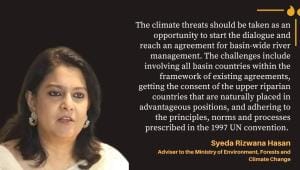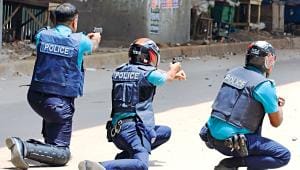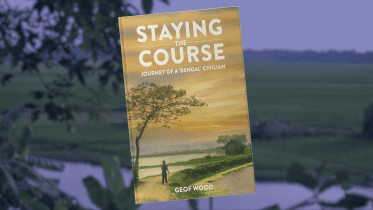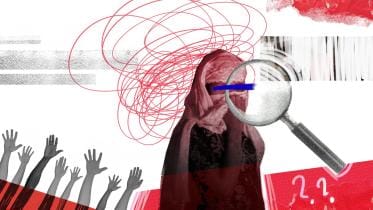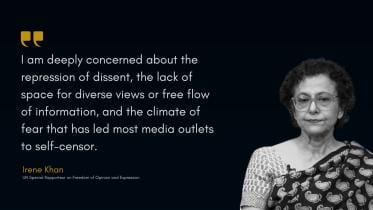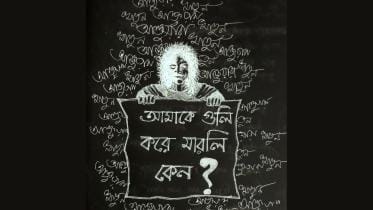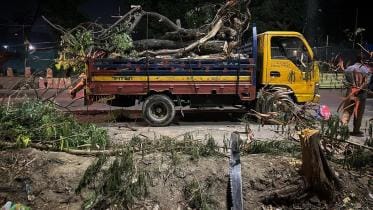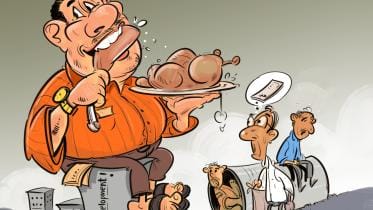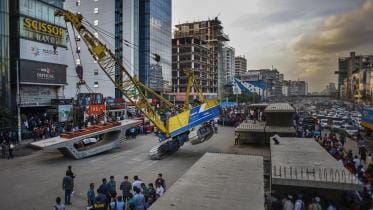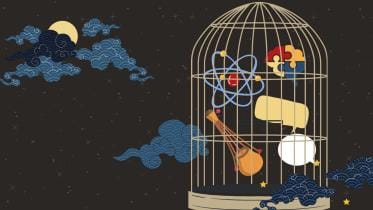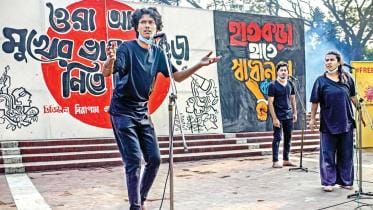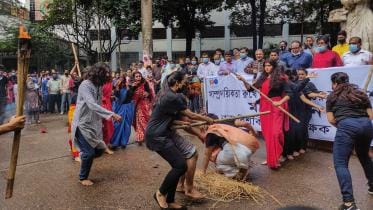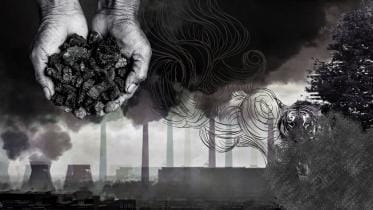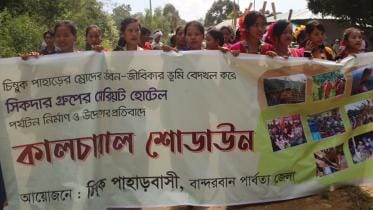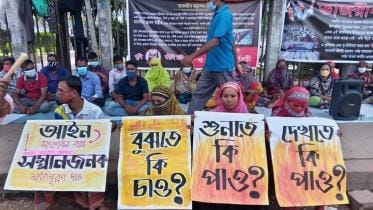Geof Wood: 'I feel my identity is tied up with Bengal'
Geof Wood talks to Sushmita S Preetha of The Daily Star about his latest book, in which he explores the dilemmas of being an academic immersed in the processes of development and the intersection between policymaking and activism.
11 February 2024, 01:00 AM
The violence of silencing a rape survivor
That justice for rape survivors is a mirage in this country is no news, with a miserable conviction rate of three percent in rape cases.
3 February 2024, 02:00 AM
‘Human rights obligations are not an imposition from the outside’
UN Special Rapporteur on Freedom of Opinion and Expression Irene Khan speaks with The Daily Star about the recent general election, shrinking space for dissent, and the pressing need to address human rights concerns in Bangladesh.
13 January 2024, 02:00 AM
The price we pay with each deleted word
With each new term of the ruling regime, and each new provision or law, we have learnt a bit more of self-censorship.
6 January 2024, 02:00 AM
Govt's priority is to access, not protect, our personal data
The government has heavily invested in purchasing surveillance equipment and enhancing the capacities of various agencies to use them over the years, but it hasn't shown an iota of the same interest in what should have been its priority—protection of citizens’ data
24 November 2023, 02:00 AM
You can’t quell workers’ hunger by opening fire on them
Rather than assuage the workers by announcing a respectable wage, the wage board has essentially fuelled workers’ outrage and made a mockery of the wage negotiation process
9 November 2023, 10:38 AM
Why the delay in declaring minimum wage for RMG workers?
Will the wage board and our policymakers truly hear the stories of backbreaking work and heartbreaking debt of the garment workers, who have kept the economy going even at its worst phases?
21 October 2023, 03:00 AM
Why I feel suffocated by Dhanmondi
Dhanmondi these days is a cacophony of people, traffic, events, vendors, schools, hospitals, restaurants, and construction sites.
18 May 2023, 13:00 PM
An energy sector on steroids
Why should we pay for the government’s questionable policies?
10 January 2023, 13:20 PM
If only irony could pay bills…
There are two kinds of numbers that I find difficult to digest these days. The more I try to swallow the one, the more unpalatable the other becomes.
27 October 2022, 01:12 AM
How to get away with murder
The authorities can’t escape liability for deaths at BRT site by blaming the contractors
17 August 2022, 11:20 AM
Normalise happy divorces, not unhappy marriages
Why do we never question the psychological impact on children stuck between two parents in an unhappy marriage?
24 May 2022, 15:07 PM
When sentiments reign over reason
Some of us may breathe a sigh of relief that Hriday Mondal, imprisoned for 19 days and denied bail twice, for trying to explain the difference between science and religion to his students, has been granted bail.
20 April 2022, 18:00 PM
An ordinary person’s guide to dangerous online regulations
Two dangerous policy drafts regulating our online presence have been prepared right in front of our noses, and except for a few usual suspects crying wolf, there has been little public outrage over it.
2 April 2022, 18:00 PM
When the state wants to make criminals out of journalists
Anyone who has seen the video of Chattogram-based journalist Golam Sarwar—taken shortly after he was found unconscious on the banks of a canal following a disappearance of three days—is unlikely to forget the helplessness and fear coursing through his bruised being, as he kept on uttering the words, “Please, brother, I won’t write anymore.”
1 November 2021, 18:00 PM
This is not how Hindu devotees wanted to bid farewell to Durga
The scenes are at once familiar and unfamiliar.
19 October 2021, 18:00 PM
The coal conundrum: Are we really moving away from dirty energy?
After a decade of ruthlessly pursuing the world’s dirtiest fuel, the Ministry of Power, Energy and Mineral Resources (MoPEMR) is contemplating closing down 13 of the 18 previously approved coal-based power projects around the country and apparently switching to “cleaner” alternatives.
30 November 2020, 18:00 PM
The bloody view from the resort in the hills
The announcement that a five-star “Marriott Hotel and Amusement Park” is being built in Bandarban no doubt comes as welcome news to Bengali elites and the nouveau riche looking for novel and Instagrammable ways of spending their weekends and disposable incomes in the luscious hills of the CHT.
12 November 2020, 18:00 PM
In Search of A Suitable Adaptation
I’ve long come to accept that there’s no such thing as a suitable adaption of a favourite book. Yet, when it was announced that Vikram Seth’s A Suitable Boy (1993), a novel I have loved through the decades, was going to be adapted by the BBC for a miniseries—and directed by Mira Nair, no less—I couldn’t help but feel hopeful about the possibilities. Could this really be… the one?
4 November 2020, 18:00 PM
Why are former Tazreen workers still on the streets?
For the last 45 days, at least 40 (former) workers of Tazreen Fashions Limited have been staging a protest on the sidewalks outside the Press Club, unnoticed, for the most part, by the media.
1 November 2020, 18:00 PM






